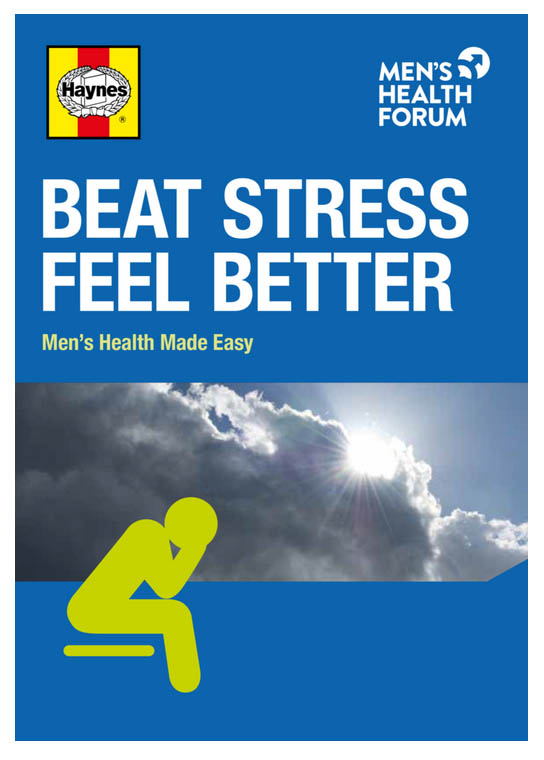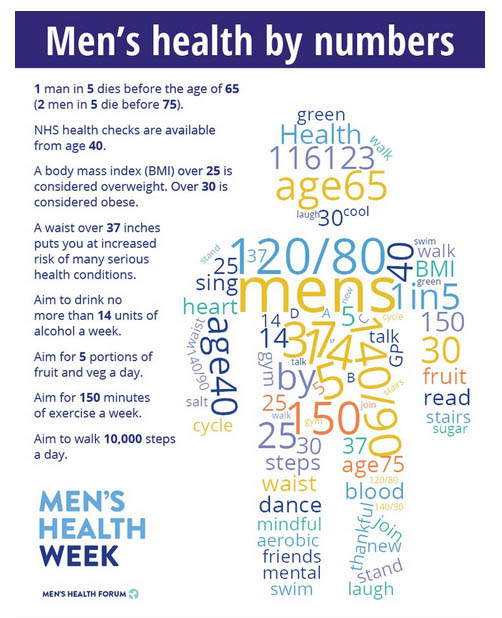In Male Health Awareness Week, Grant Hughes, the graduate designer from Herbert William kitchens, takes this opportunity to highlight the toll that demanding careers can exact on workers in the KBB industry and how we should all strive for a better work/life balance and an understanding of, and willingness to help with, each others’ problems
I have been listening to a lot to discussions on the radio during Male Health Awareness Week (June 11-16) and I was happy that they brought out in the open a statistic that has often slipped under the radar.
I am referring to male suicide. According to the Samaritans, men are three times more likely to take their own lives than women.
Too often I have seen men, including myself, try to share their feelings only to be told to ‘man up’ or ‘stop being a girl’. These people aren’t the only damaging influence on male mental health – the majority just dismiss it, making us feel like these emotions are completely invalid. And feeling emotionally invalid is the quickest route to worse and darker feelings.
This has resulted in me and many other men hiding our emotions, choosing to rant and vent instead to a close circle of trusted individuals. But what about those men who don’t have those few trusted people?
 This is a social and societal issue that gets paid very little attention and one that, at its core, is sexist – let alone just not right. Men in society are expected be stalwarts and ‘not cry’. Anyone suffering from depression or shaky mental health deserves the support of everyone in their community.
This is a social and societal issue that gets paid very little attention and one that, at its core, is sexist – let alone just not right. Men in society are expected be stalwarts and ‘not cry’. Anyone suffering from depression or shaky mental health deserves the support of everyone in their community.
It raises certain questions. Why is it considered taboo for a man to cry or lose his temper? Why is a man simply expected to grieve quietly? Some of you may say this is not true anymore, but it is clear to me that society still expects this of men.
I have heard a lot of people blame the rise of social media and technology for this problem. But, according to the Samaritans, male suicide is also at its lowest rate in 30 years, although males are still more likely to do it. That says to me that a social shift has started to occur and that social media and the internet may even provide an anonymous way to cope with these emotions.
You will also hear people refer to the ‘snowflake generation’, who are accused of not being able to cope with life because they are ‘too emotional’. Well, I am willing to bet they have the best work/life balance, and lowest suicide rate, of any generation so far! So, let’s stop trying to stigmatise younger generations and start figuring out what we can learn from them, how we can support them and how society can improve.
So why am I writing about this in a magazine aimed at KBB professionals? Let’s move on from male suicide and talk about health in general. How many of you genuinely have a reasonable work/life balance? It’s something I personally strive for and something I am quite blunt about fighting for. Luckily I learned very early in my career that the only person who can say ‘no’ is me.
I’ve worked for companies that bend the law and try to confuse you into working unreasonable hours. Quoting things like, “You signed a non-sociable hours contract” when they are scheduling me for my third 12-hour shift in a row with only seven hours in between.
I have also heard of the unwritten law in larger multiple kitchen companies, where you are expected to work unpaid overtime during the sales. I believe this is achieved through peer pressure and not company policy. I am well-versed in saying “no, that’s unreasonable, I won’t be doing that” without being afraid of losing my job.
I also know that a lot of company owners pretty much expect you to commit your whole life to their business. I get that, it takes a lot of work, but think about the lasting effects of this and plan yourself a holiday.
 According to OECD data, we are middleweights when it comes to working hours, with the average UK worker putting in 1,538 hours a year. A far cry from Mexico, which tops the list at 2,258, but more than Denmark at 1,408 and Germany at 1,356. So, they work fewer hours, right? Does that mean they have a weaker economy and lower disposal income? If you assumed that, you’d be wrong! The OECD also holds data on the average wages. In the UK, our average wage is $43,732, whereas for Germany is $47,585 and Denmark is $51,466.
According to OECD data, we are middleweights when it comes to working hours, with the average UK worker putting in 1,538 hours a year. A far cry from Mexico, which tops the list at 2,258, but more than Denmark at 1,408 and Germany at 1,356. So, they work fewer hours, right? Does that mean they have a weaker economy and lower disposal income? If you assumed that, you’d be wrong! The OECD also holds data on the average wages. In the UK, our average wage is $43,732, whereas for Germany is $47,585 and Denmark is $51,466.
So, we could work fewer hours, earn more money and have a stronger economy. But as a country, we have a real expectation for everyone to graft and graft!
Here’s a thought… If you earn all that money and don’t have time to spend it, is it worth having it in the first place?
In closing, I hope I have given you food for thought. We are already an industry that is quite clearly ready to take on the economic impact of our actions. We should all start thinking about the social and mental health implications, too.
Let’s help each other out, lean on each other and pull together as a team. Stop discrimination in all its forms, don’t dismiss someone because you don’t like what they are saying and accept everyone for their strength’s while filling in for their weakness. They will do the same for you.
- Male Health Awareness Week 2019, June 11-16, is organised by Men’s Health Forum